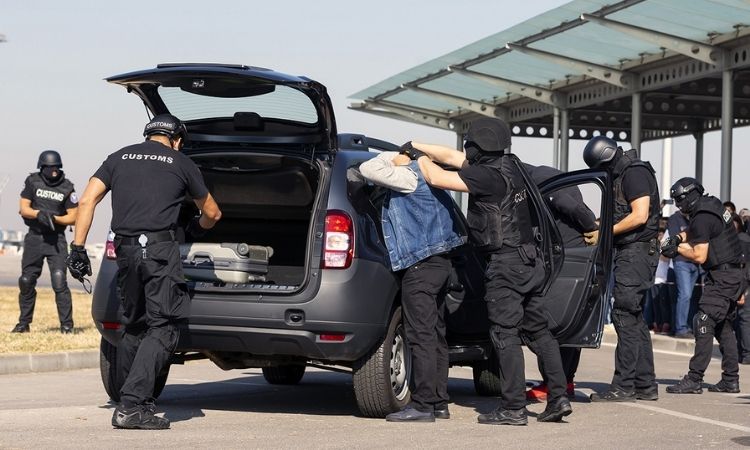
The misuse and abuse of drugs pose a significant health challenge to the country, resulting in overdose deaths, HIV, and hepatitis C infections, never-ending criminal court cases, and severe national financial burdens. Addiction is a complex disease that is treatable and manageable.
However, people who need substance abuse treatment are often unable to access it or cannot afford it. The issue of drug abuse then becomes a matter of availability. On the one hand, if illegal drug trafficking was stopped, addiction rates may slow, and progress would be made. So, what are the ways to stop illegal drugs from entering the country?
First, Where Do Illegal Drugs Come From?
According to the Drug Enforcement Agency, most illegal drugs enter the United States from Mexico. The drugs that are coming in include Fentanyl, methamphetamine, cocaine, marijuana, heroin, and counterfeit prescription opioids and stimulants. Additionally, the DEA states how Mexican drug cartels known as transnational criminal organizations (TCO) are the biggest threat to the country.
Mexican TCOs are the greatest drug trafficking threat to the United States; they control most of the U.S. drug market and have established varied transportation routes, have advanced communications capabilities, and hold strong affiliations with criminal groups and gangs in the United States.(DEA)
What Drugs Are Most Sought After?
The 2020 National Survey on Drug Use and Health shows that rates of illicit drug use. They have determined which drugs are most sought after, and illegal marijuana is first. Other drugs are concerning, but only the most abused are listed here:
- Marijuana
- Heroin
- Cocaine
- Methamphetamine
- MDMA (Ecstasy)
- Prescription Opioids
- Prescription Stimulants
- Benzodiazepines
In 2020, 21.4% of people aged 12 or older (or 59.3 million people) used illicit drugs in the past year (NSDUH)
What if We Stopped Drug Use to Stop Drug Trafficking?
Stopping someone from using drugs is a multi-dimensional challenge. Addiction occurs most often due to experiencing trauma, sexual or physical abuse, neglect by caretaker or parent, dysfunction in the home, poverty, and often undiagnosed mental health disorders. However, addiction is a disease of the mind. When someone stops using drugs, their behavior will change, but their state of mind and emotions will not. Removing the drug does not cure addiction. Addiction can only be helped with therapy and ongoing commitment to recovery through support groups and other resources to provide lifelong attention to the person’s progress in their recovery.
Why Does Addiction Need Treatment?
Anyone addicted to any type of drug or a behavioral addiction such as gambling, sex, shopping, food, and others must receive evidence-based forms of treatment that target their emotional wellbeing. Evidence-based treatment identifies the problems within the person’s mind that make them feel anxious, depressed, angry, or afraid. Once someone undergoes therapy for their mental and emotional responses, they then learn how to cope. The ideal recovery also includes developing awareness of how the individual reacts to their relationships regarding their thinking.
What Is Evidence-Based Treatment?
Evidence-based treatments are methods and practices that are backed by scientific evidence. This means that studies have been conducted, and extensive research has shown the therapy type to be effective. There are two main types of evidence-based treatment for addiction, and they are behavioral therapy and pharmacotherapy. Both of these treatments are proven to help people get and remain drug and alcohol-free long term.
What is Behavioral Therapy?
Behavioral therapy is psychotherapy that is derived from a behaviorist theory or cognitive principles. It is often referred to as talk therapy. Two prime examples of behavioral therapy are cognitive behavioral therapy and dialectical behavioral therapy. The National Institute of Mental Health supports CBT for addiction.
Cognitive behavioral therapy (CBT) approaches have among the highest level of empirical support for the treatment of drug and alcohol use disorders (NIMH)
What is Pharmacotherapy?
Pharmacotherapy simply refers to treating a disorder or addiction with medication. The use of medications for helping addicts is called medication-assisted treatment or MAT. Medications for addiction will minimize withdrawal symptoms, reduce alcohol and other drug cravings, and help to prevent relapse or use of specific drugs. Medication-assisted treatment aims to achieve long-term recovery from drugs and alcohol.
River Walk Recovery Provides Same Day Admission With One Call
Riverwalk Recovery Center understands how hard the recovery process can be. Recovery is a journey and not a destination. Our programs help people overcome addiction and mental health issues by helping them change their lifestyles. We have a team of compassionate and understanding professionals who are invested in your success. If you or someone you love is struggling with drug or alcohol addiction, give us a call and let our team help you. River Walk Recovery provides same day admission with One Call!
